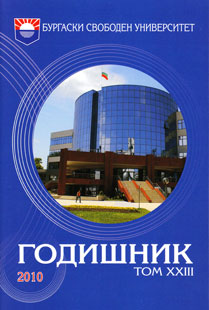ПРИНЦИПЪТ EX AEQUO ET BONO В ЮРУСПРУДЕНЦИЯТА НА МЕЖДУНАРОДНИЯ СЪД НА ООН
THE EX AEQUO ET BONO PRINCIPLE IN THE JURISPRUDENCE OF THE UN INTERNATIONAL COURT OF JUSTICE
Author(s): Alexander DraguievSubject(s): Law, Constitution, Jurisprudence
Published by: Бургаски свободен университет
Keywords: internatonal law; UN International Court of Justice; ex aequo et bono; fairness; good faith
Summary/Abstract: Art. 38 (2) of the Statute of the UN International Court of Justice (I. C. J. ) grants the Court the power to decide a case ex aequo et bono, which means application of the moral categories “fairness” (aequo) and “good faith” (bono). The Statute of I. C. J. treats this principle as an extra – judicial method, which the Court may use in the adjudication of a dispute between two States only on their express and mutual requests. Then the resolution of the dispute will be based not on legal rules but on the judges’ moral considerations of fairness and good. This article analyses the legal nature and the scope of application of the principle ex aequo et bono.
Journal: Годишник на Бургаски свободен университет
- Issue Year: XXIII/2010
- Issue No: 1
- Page Range: 296-303
- Page Count: 7
- Language: Bulgarian

